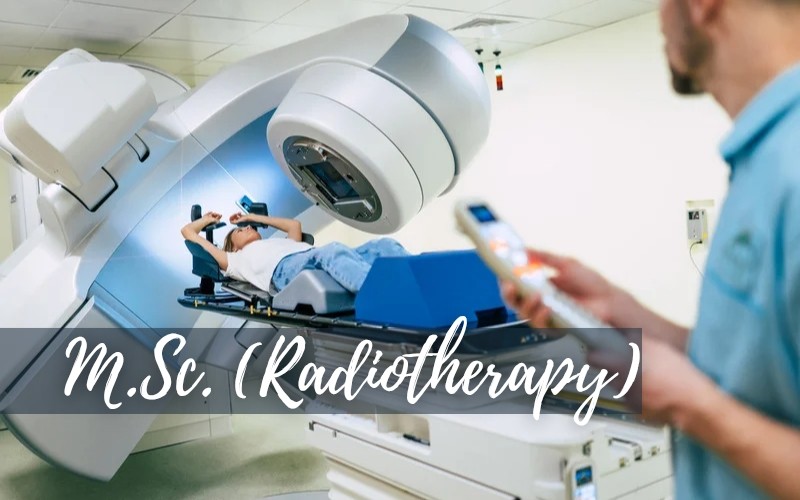Admission Enquiry

The fight against cancer demands advanced technology and highly skilled professionals. The M.Sc. in Radiotherapy program at NIILM University is a specialized postgraduate course designed to train competent radiotherapy technologists who play a crucial role in modern cancer treatment.
This program blends theoretical knowledge, clinical training, and research exposure, preparing students to work alongside oncologists, radiation physicists, and healthcare teams in delivering safe, accurate, and patient-focused radiotherapy treatment.
Comprehensive Curriculum
Covers radiation physics, anatomy & oncology, radiobiology, imaging techniques, treatment planning, and patient care.
Hands-On Clinical Training
Practical exposure through hospital tie-ups, radiotherapy labs, and live treatment simulations using modern equipment.
Focus on Patient-Centered Care
Learn how to manage treatment protocols with compassion, precision, and ethical responsibility.
Expert Faculty & Mentorship
Get guided by experienced radiologists, medical physicists, oncologists, and academic researchers.
Research & Innovation-Driven
Opportunities to work on real-world cancer care research, new radiation technologies, and clinical improvements.
Radiation Physics & Dosimetry
Radiobiology & Oncology
Imaging Modalities (CT, MRI, PET) in Treatment Planning
Radiation Therapy Equipment & Techniques
Patient Positioning & Safety
Treatment Planning Systems (TPS)
Radiation Protection & Quality Assurance
Clinical Practice & Ethics in Oncology
Radiation Therapy Technologist
Oncology Treatment Planner
Clinical Application Specialist (Radiation Equipment)
Medical Imaging & Dosimetry Expert
Cancer Hospital Radiotherapy Department Staff
Research Assistant in Oncology Projects
Academic/Teaching Positions in Allied Health Institutions
Hospital Quality and Safety Officer (Radiation Department)
The M.Sc. in Radiotherapy at NIILM University is more than a degree — it’s a commitment to the future of cancer care. Join a field where technology meets empathy, and where your expertise directly improves lives every single day.

Engaging, interactive content designed for modern, digital learning environments.

A well-designed curriculum that fosters skill-building through systematic learning.

Efficient, realtime assessments to track and enhance student progress.

Cutting-edge technology integrated across the campus for an immersive learning experience.

Robust industry connections to facilitate valuable internships and secure placements.

We select the best faculty to ensure exceptional education and expertise.

Focused training aligned with industry needs to boost career readiness.

Access to State-of-the-art computer labs for hands-on technical skill development

Copyrights © 2024 NIILM UNIVERSITY. All rights reserved.